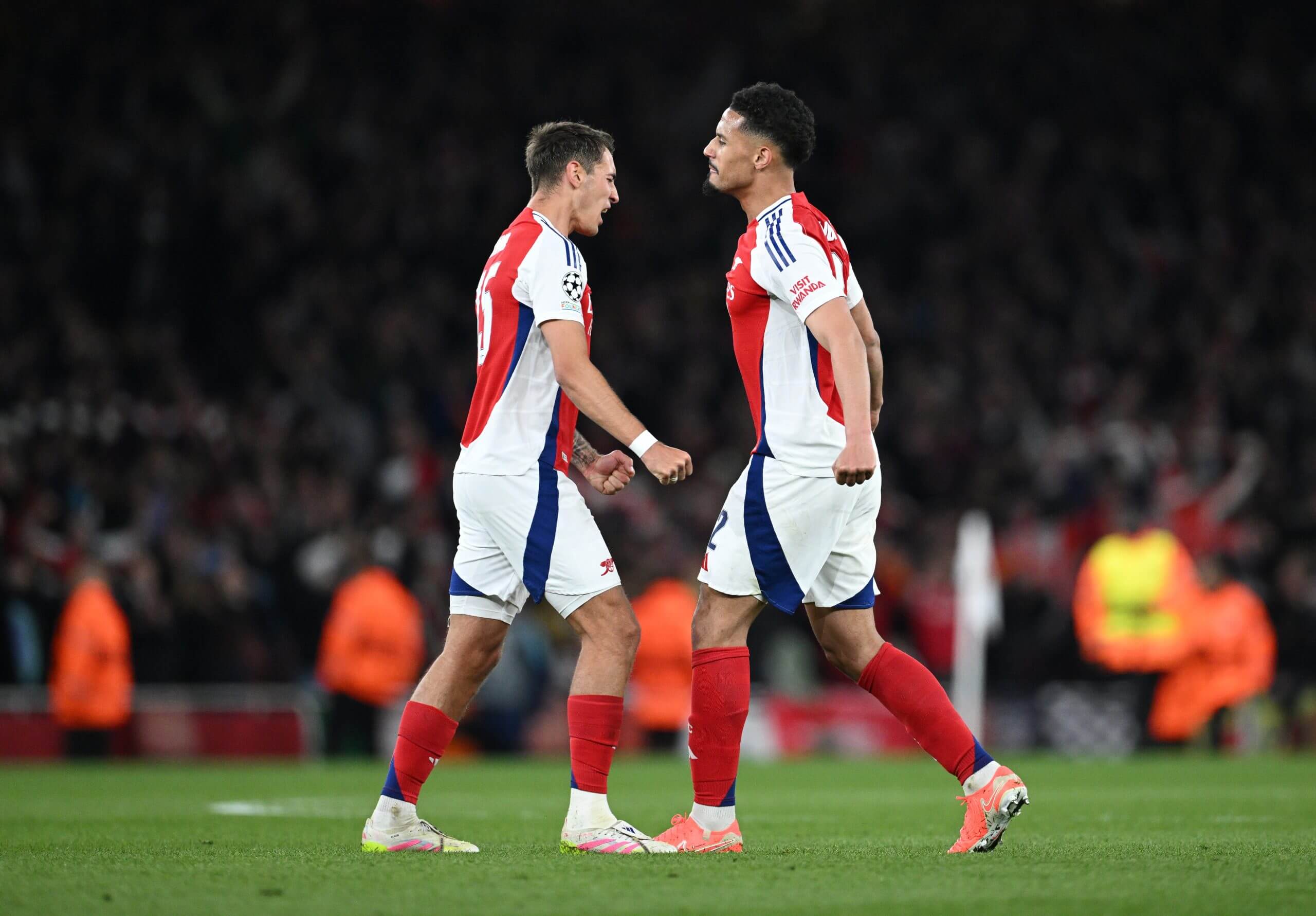
Inscribed on the side of a tower block in his home city of Tychy, Poland, the mantra used to celebrate Jakub Kiwior’s success is the same one that has driven his unlikely rise to becoming a Champions League semi-finalist: “Impossible is nothing.”
Facing onto GKS Tychy’s stadium, where Kiwior played as a kid, the 11-storey mural was there for two months to inspire the next generation of players working their way up from the bottom like he did.
Advertisement
Lodz-based artist Maciek Polak was tasked by Adidas with creating the work. Painted in a housing estate known as Osiedle A, one of the few remaining 1950s-style tenements, the glamour of Kiwior in a bright red Arsenal jersey is a symbol of how radically Poland’s living standards have improved in his lifetime.
It started in Tychy for Kiwior, who is now a mainstay of the Poland national team with 33 caps, but he has travelled far to get here: Anderlecht at 16, a small village in Slovakia at 18, Italy during the pandemic and England since 2023.
Kiwior has become an integral part of the Arsenal team — and a candidate for the club’s player-of-the-month award — since Gabriel was lost to injury last month. There was unease about the prospect of him coming up against Real Madrid’s Kylian Mbappe, but he surpassed expectations, as he has done his whole career.
Usually, when researching the story of a player operating at the elite level, each coach in their formative years can offer a moment that affirmed their belief they were destined for the top.
Kiwior is different. His ability was doubted at nearly every juncture and his character was questioned. Still, the same words are used to describe him: quiet, reserved, introverted.
They were weaponised earlier in his career. How could a central defender from eastern Europe succeed if he could not communicate and command?
But Kiwior has always done his talking on the pitch and it is what has carried him to Wednesday night, the biggest game of his career, as he attempts to shut out Paris Saint-Germain and help Arsenal overturn a 1-0 deficit to seal a place in the Champions League final.

Jakub Kiwior and William Saliba, right, bump chests after Arsenal’s 3-0 win over Real Madrid last month (Justin Setterfield/Getty Images)
Spezia will be keeping a close eye on proceedings as they stand to gain if Arsenal lift the trophy in Munich this month.
Arsenal signed Kiwior in January 2023. According to sources familiar with the process, speaking anonymously to protect relationships, Arsenal’s opening offer was €13million (£11m; $15m), some way off Spezia’s original aim of €40m. In the end, negotiations settled on €25m guaranteed, with up to €2m in bonuses depending on the number of appearances he makes — and if Arsenal win the Champions League.
Advertisement
That would be a small price to pay for the ultimate glory.
Poland national team manager, Michal Probierz, has two players in the other semi-final — Inter’s Nicola Zalewski and Piotr Zielinski — but he will be proudly watching Kiwior next week.
“I hope it’s now normal for Polish players (to play at this level) and across Poland, there are fans of Arsenal,” Probierz tells The Athletic.
“I know how many people watched Jakub against PSG (in Tuesday’s first leg). I hope Arsenal win so that he can play the Champions League final.
“The most important for all coaches is giving confidence to players. It’s very bad if you think that if you make a mistake, you won’t play the next game. Now, when you see how he opens the game and plays with the ball, he knows that if he makes a mistake, it’s no problem — he knows he will play the next game.
“He has been performing very well and (has been) very stable. He is a warrior.”
Probierz first saw Kiwior as a teenager playing for Slovakian club Zilina, but when he took over from Fernando Santos as Poland manager in September 2023, he decided quickly that Kiwior was going to be a key part of his team.
“When you see him now and his performances in the Premier League and Champions League, he is the number one or two (defender for Poland),” says Probierz, who has also managed clubs in Poland and Greece.
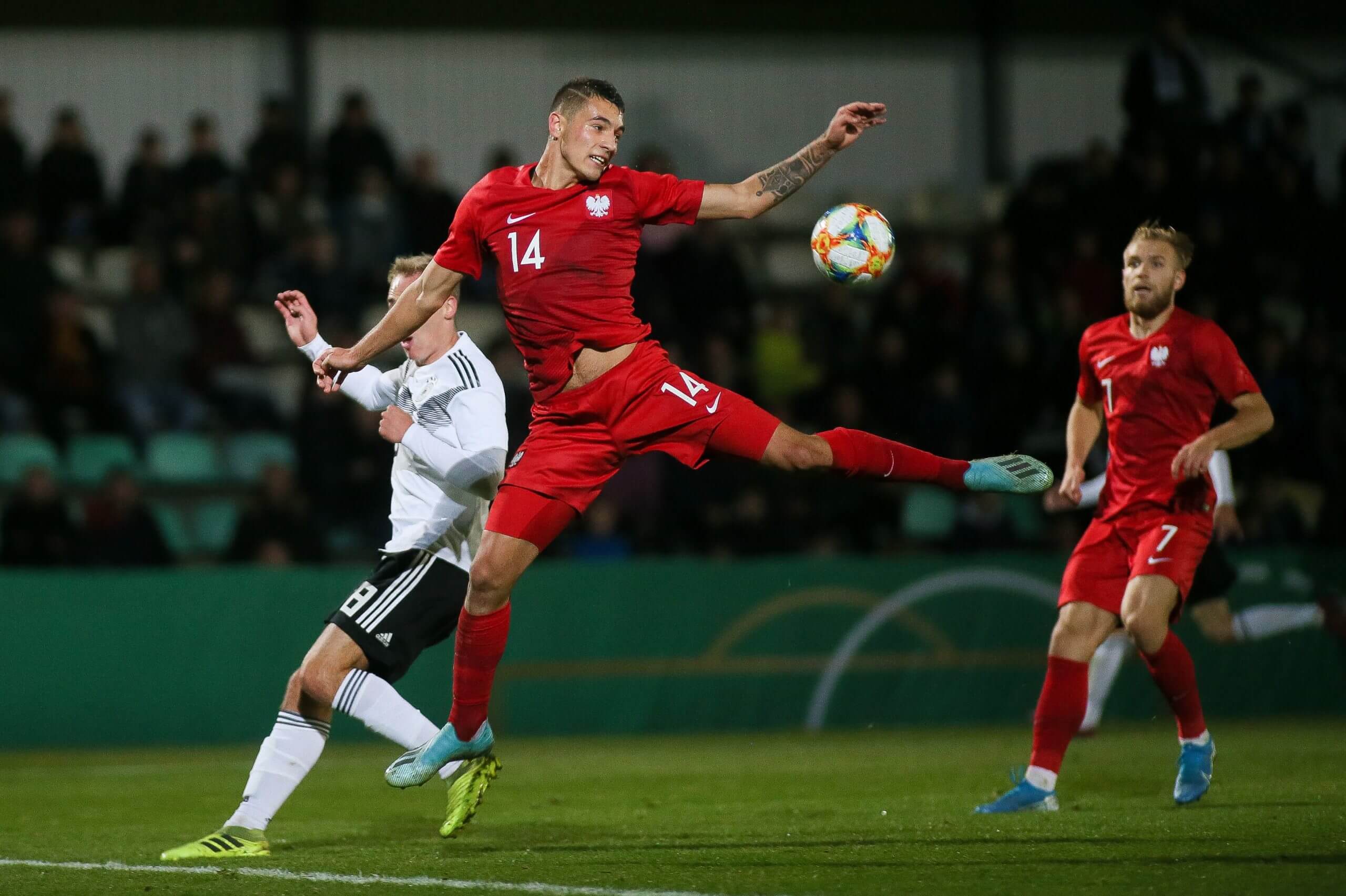
Kiwior in action for Poland Under-20s in 2019 (Selim Sudheimer/Getty Images for DFB)
“I worked 22 years in clubs and you have some players who, if they make a mistake, they will have no self-confidence but you have to tell him: ‘It’s no problem, play’. This is the number one (thing) for him. Confidence.
“For the national team, the player must play for his club, but even when he didn’t have minutes, he played really good in those games.
“For his career, he has a big future if he can have more self-confidence and be a leader on the pitch. We spoke about the situation. He must be more open for people and this is good because now I see him speak with the players on the pitch. I hope he will be a big leader for Arsenal and the Poland national team.”
Advertisement
The Morocco Under-20 manager, Mohamed Ouahbi, who was Kiwior’s former youth coach at Anderlecht, attended a coaching conference two weeks ago that included Arsene Wenger as its guest speaker.
There, he learned a lesson about how Kiwior has defied perceived limitations.
“The most important thing, Arsene said, is to go step by step,” Ouahbi says.
“You can go to a higher level at 18 or 19, but don’t play and don’t progress. The key is playing and (he said) it is like the career of Jakub Kiwior. He started at a small club. Every year, the level was higher and he has had a progressive career.”
After working his way up the levels in Tychy before joining the city’s biggest club, GKS, aged 12, Kiwior moved to Belgium at 16. His agent at the time — who looked after fellow Polish player Marcin Wasilewski, a Premier League winner with Leicester City — brokered the move.
When Kiwior arrived, he did not speak English, French or Dutch, so he found it hard to integrate but his physical profile meant he represented potential.
“The boss of the academy was very happy with him and his potential to play for the first team as he was left-footed and was strong in the duel,” says Ouahbi.
“But it wasn’t going to happen quickly as he had problems with mobility. When I watched his game against PSG, I was thinking, ‘Wow’, because this is not the Jakub I remember playing before.
“He has worked to change. He understands the position now and how important anticipation is. Before, when he had to defend big spaces, it was difficult for him.”
He played in the UEFA Youth League and was a regular for Anderlecht’s reserves between 2016 and 2018, but he left without making a senior appearance, moving to provincial Slovakian club Zeleziarne Podbrezova.
Kiwior played better on the left of a back three as he could bring the ball out of defence confidently, which has been the enduring contrast of him as a person and player.
Advertisement
“His character is timid and introverted, but when he plays football, he plays with personality,” says Ouahbi.
“He would try to pass the ball and break the lines. He tried to play and did not panic and kick it long. It is the difference between his character not speaking but in his head, he had the personality to be a footballer.
“When he was with the youth, he didn’t have a problem but when you want to play with the first team without communication, it is difficult for the coach to put in a youth defender who doesn’t speak. It is dangerous as the coach will think he is not ready.
“Kiwior, with more character, I’m sure he could have begun with the first-team squad but I don’t think the coaches had confidence in him.”
Did Ouahbu see Kiwior reaching his current elite level when he left for Slovakia to start his senior career? “If I am honest, no,” he says.
“If a coach says they knew, then it is not true. When you are a coach, you know one thing and that is that you don’t know. You could see potential at 17 as he had a good left foot and was good with his head, but he wasn’t fast and didn’t have the mobility. He could play (in) the first division but the top level? If I had put money on it, I would have said no.
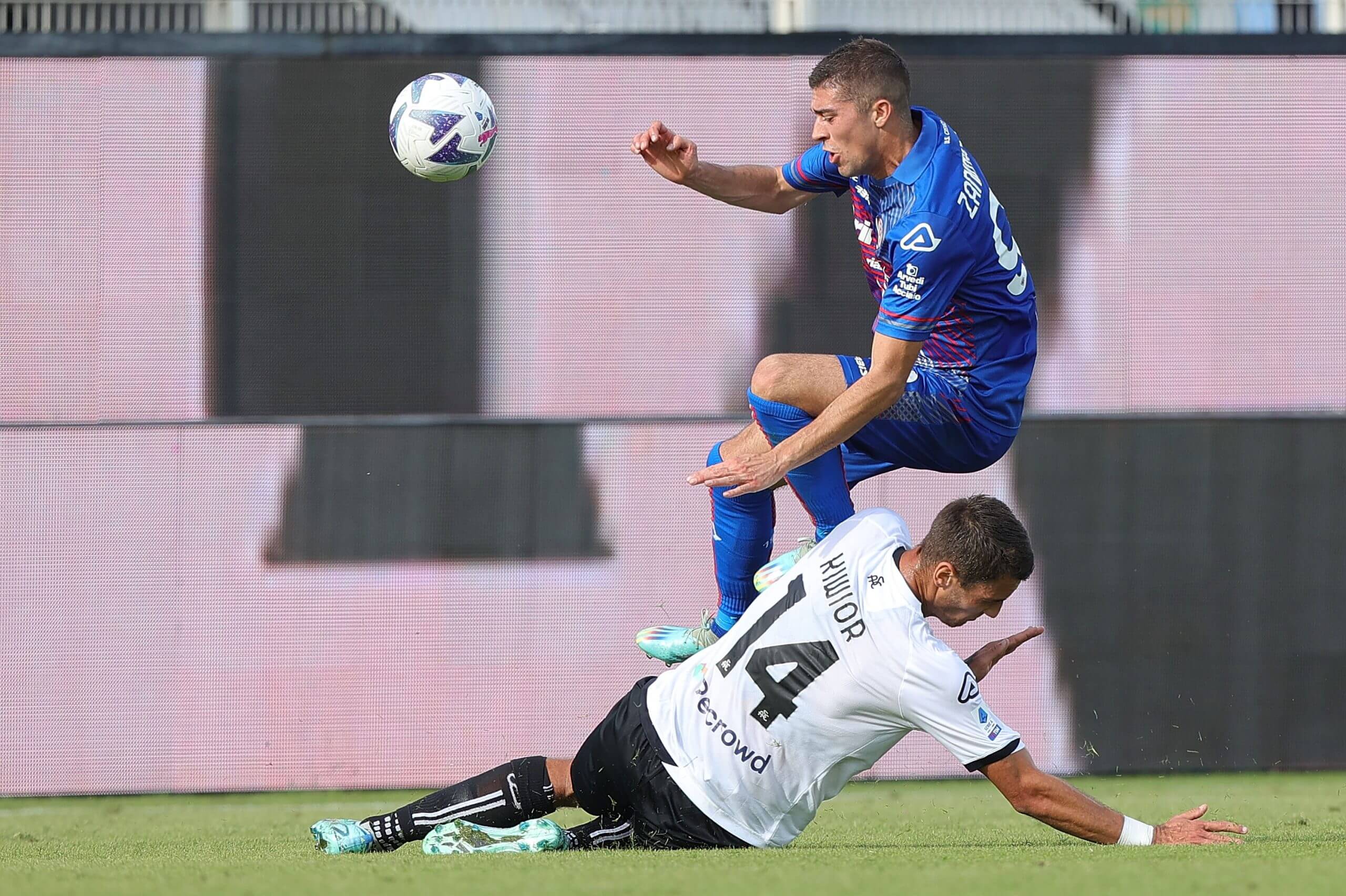
Kiwior slides in on Cremonese’s Luca Zanimacchia during his Spezia days (Gabriele Maltinti/Getty Images)
“When I am watching the Champions League against Real Madrid and PSG and see Kiwior is playing, it is a surprise. The moment he left, you think it is not possible he can make it back to a high level, but you need humility to go to a club like that (Podbrezova) and say: ‘Yes, I want to play’.
“He knows what he can do. It is difficult with youth players as a lot of them try to be (other) things, but if you know yourself and your quality, it is an important skill. I am happy for him. He deserves it as he is a very good guy.”
The jump from Slovakian football to a top team in the Premier League is too big. Kiwior had to find the next step and it came through the work of Riccardo Pecini, who was in charge of Spezia’s football department in 2021.
Advertisement
“He came to Italy in the first year with Thiago Motta and played as a central midfielder,” Spezia’s sporting director, Stefano Melissano, tells The Athletic.
“In the second year, he played centre-back (under) Luca Gotti. He had an important evolution in that period, both to be called up in the Polish national team and to qualify for the World Cup.“
Kiwior’s 18 months in Italy served as a great transition period where he honed his defensive instincts and physically matured. He only played 43 games for the club but it was enough to capture the attention of top sides in Europe.
The World Cup in 2022 was a major moment for Kiwior’s profile as it saw interest turn into concrete offers.
“In that period before going to the World Cup, in the months before, Arsenal came to see him often in Serie A at our games,” says Melissano.
“They were there all the time at Spezia. The other team that was looking at him all the time was Brighton. At the end of November, Arsenal made the first offer. We refused because we wanted him to play in the World Cup to have more visibility and secure a better price.
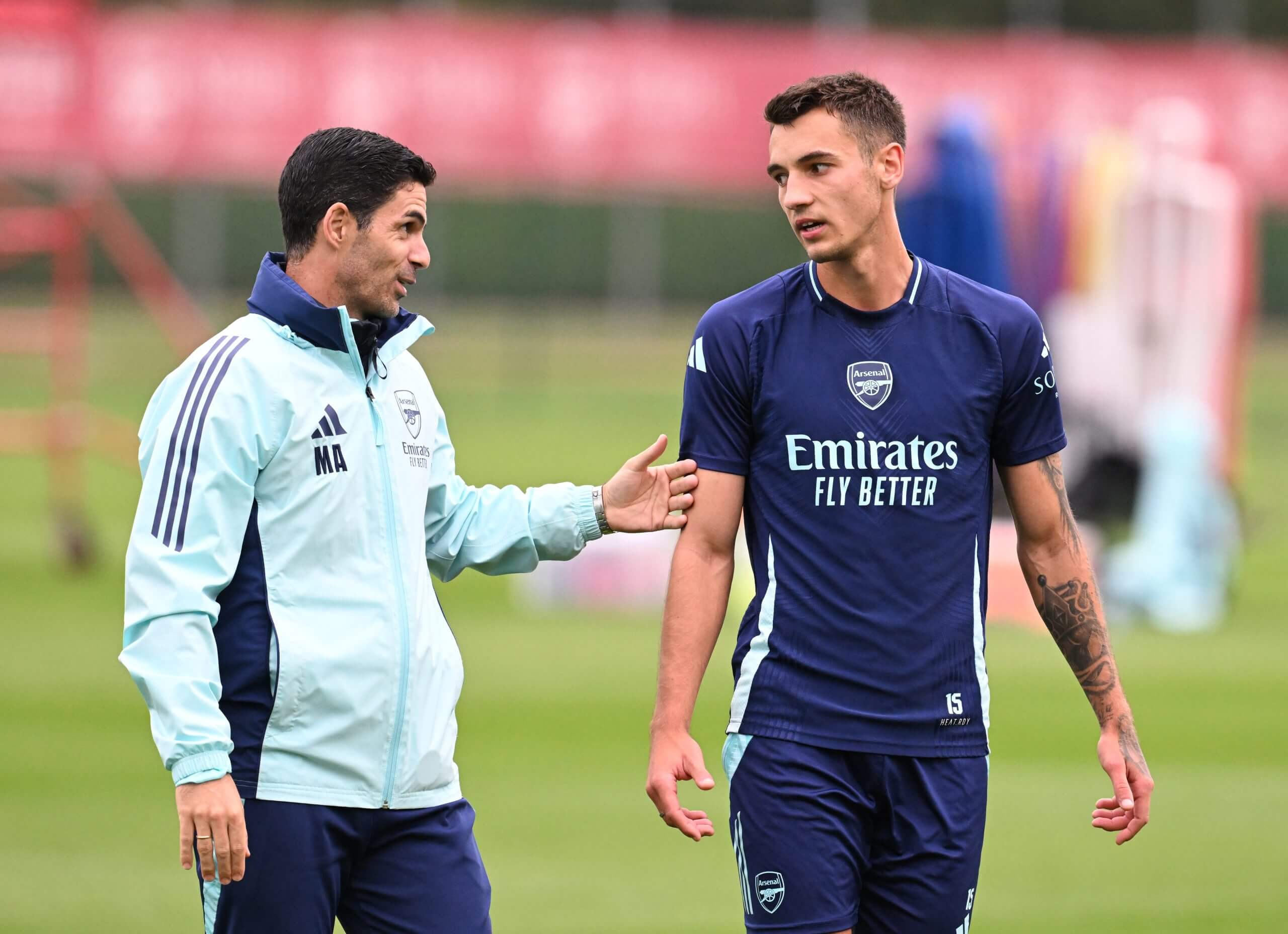
Mikel Arteta has turned to Kiwior as a deputy for the injured Gabriel (Stuart MacFarlane/Arsenal FC via Getty Images)
“After the World Cup, Arsenal kept sending more and more offers, and each time they would raise their offer. Before the Coppa Italia quarter-finals against Atalanta, in Bergamo, we received a definitive offer, which is the one we sold for in January. An hour and a half before the start of the game, they sent us the last offer.
“He still played that night and then the next day, he went off to Arsenal.”
Kiwior is playing an important role for Arsenal in the closing weeks of this season but he has been a spare part for much of his two and a half years in north London due to the formidable partnership of William Saliba and Gabriel. When he arrived midway through Arsenal’s unexpected title push in that 2022-23 season, Arteta opted for Rob Holding to fill in for Saliba.
Advertisement
It would have been a big ask to throw the young Pole in at the deep end under such pressure but last season Arteta did so, playing him at left-back for a two-month period in which Arsenal hit top gear.
Kiwior has now played seven games in a row and is building an understanding with Saliba as his partner. When it became apparent that he was Arteta’s only option to fill the void left by Gabriel, he attempted to reassure by saying Kiwior will be fine. It felt like an attempt to ease his nerves but he has grown into the role.
“He’s so likeable,” said Arteta in his pre-match press conference on Friday, reflecting on Kiwior’s standing.
“Everybody really loves him in that dressing room. He’s very vocal on the pitch. He obviously had a language barrier at the beginning when he joined us. Now he’s much more open with the boys and he gets on really well with everybody, so I’m very happy with him.”
(Top photo: Stefan Koops/EYE4images/NurPhoto via Getty Images)
This news was originally published on this post .




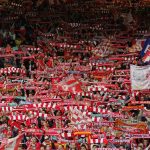
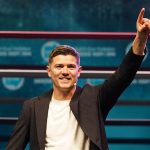

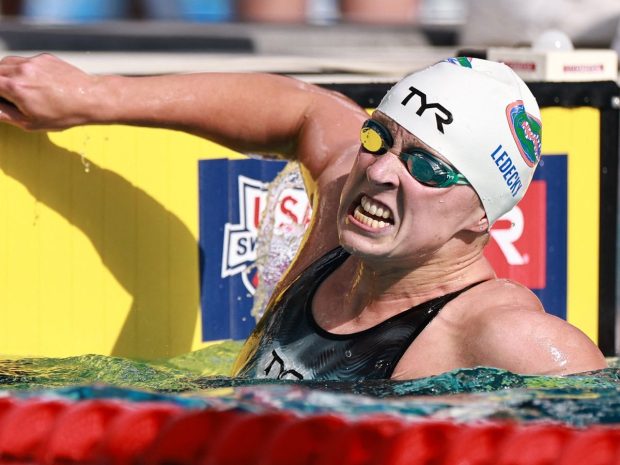
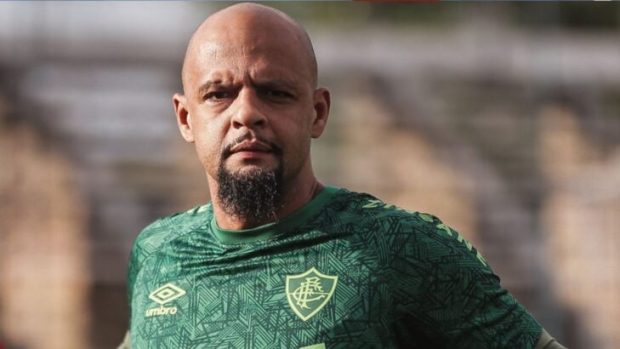

Be the first to leave a comment